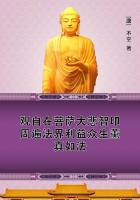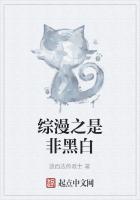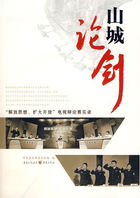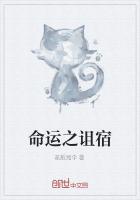Lloyd owned one named William, who, strangely enough, was often called by his surname, Wilks, by white and colored people on the home plantation. Wilks was a very fine looking man. He was about as white as anybody on the plantation; and in manliness of form, and comeliness of features, he bore a very striking resemblance to Mr. Murray Lloyd. It was whispered, and pretty generally admitted as a fact, that William Wilks was a son of Col. Lloyd, by a highly favored slave-woman, who was still on the plantation. There were many reasons for believing this whisper, not only in William's appearance, but in the undeniable freedom which he enjoyed over all others, and his apparent consciousness of being something more than a slave to his master. It was notorious, too, that William had a deadly enemy in Murray Lloyd, whom he so much resembled, and that the latter greatly worried his father with importunities to sell William. Indeed, he gave his father no rest until he did sell him, to Austin Woldfolk, the great slave-trader at that time. Before selling him, however, Mr. L. tried what giving William a whipping would do, toward making things smooth; but this was a failure. It was a compromise, and defeated itself; for, imme<90>diately after the infliction, the heart-sickened colonel atoned to William for the abuse, by giving him a gold watch and chain. Another fact, somewhat curious, is, that though sold to the remorseless _Woldfolk_, taken in irons to Baltimore and cast into prison, with a view to being driven to the south, William, by _some_means--always a mystery to me--outbid all his purchasers, paid for himself, _and now resides in Baltimore, a_ FREEMAN. Is there not room to suspect, that, as the gold watch was presented to atone for the whipping, a purse of gold was given him by the same hand, with which to effect his purchase, as an atonement for the indignity involved in selling his own flesh and blood. All the circumstances of William, on the great house farm, show him to have occupied a different position from the other slaves, and, certainly, there is nothing in the supposed hostility of slaveholders to amalgamation, to forbid the supposition that William Wilks was the son of Edward Lloyd. _Practical_amalgamation is common in every neighborhood where I have been in slavery.
Col. Lloyd was not in the way of knowing much of the real opinions and feelings of his slaves respecting him. The distance between him and them was far too great to admit of such knowledge. His slaves were so numerous, that he did not know them when he saw them. Nor, indeed, did all his slaves know him.
In this respect, he was inconveniently rich. It is reported of him, that, while riding along the road one day, he met a colored man, and addressed him in the usual way of speaking to colored people on the public highways of the south: "Well, boy, who do you belong to?" "To Col. Lloyd," replied the slave. "Well, does the colonel treat you well?" "No, sir," was the ready reply.
"What? does he work you too hard?" "Yes, sir." "Well, don't he give enough to eat?" "Yes, sir, he gives me enough, such as it is." The colonel, after ascertaining where the slave belonged, rode on; the slave also went on about his business, not dreaming that he had been conversing with his master. He thought, said and heard nothing more of the matter, until two or three weeks after<91 PENALTY FOR TELLING THE TRUTH>wards. The poor man was then informed by his overseer, that, for having found fault with his master, he was now to be sold to a Georgia trader. He was immediately chained and handcuffed; and thus, without a moment's warning he was snatched away, and forever sundered from his family and friends, by a hand more unrelenting than that of death. _This_ is the penalty of telling the simple truth, in answer to a series of plain questions. It is partly in consequence of such facts, that slaves, when inquired of as to their condition and the character of their masters, almost invariably say they are contented, and that their masters are kind. Slaveholders have been known to send spies among their slaves, to ascertain, if possible, their views and feelings in regard to their condition. The frequency of this had the effect to establish among the slaves the maxim, that a still tongue makes a wise head. They suppress the truth rather than take the consequence of telling it, and, in so doing, they prove themselves a part of the human family. If they have anything to say of their master, it is, generally, something in his favor, especially when speaking to strangers. I was frequently asked, while a slave, if I had a kind master, and I do not remember ever to have given a negative reply. Nor did I, when pursuing this course, consider myself as uttering what was utterly false; for Ialways measured the kindness of my master by the standard of kindness set up by slaveholders around us. However, slaves are like other people, and imbibe similar prejudices. They are apt to think _their condition_ better than that of others. Many, under the influence of this prejudice, think their own masters are better than the masters of other slaves; and this, too, in some cases, when the very reverse is true. Indeed, it is not uncommon for slaves even to fall out and quarrel among themselves about the relative kindness of their masters, contending for the superior goodness of his own over that of others. At the very same time, they mutually execrate their masters, when viewed separately. It was so on our plantation. When Col. Lloyd's slaves met those of Jacob Jepson, they <92>seldom parted without a quarrel about their masters; Col. Lloyd's slaves contending that he was the richest, and Mr. Jepson's slaves that he was the smartest, man of the two. Col. Lloyd's slaves would boost his ability to buy and sell Jacob Jepson; Mr. Jepson's slaves would boast his ability to whip Col. Lloyd. These quarrels would almost always end in a fight between the parties; those that beat were supposed to have gained the point at issue. They seemed to think that the greatness of their masters was transferable to themselves. To be a SLAVE, was thought to be bad enough; but to be a _poor man's_ slave, was deemed a disgrace, indeed.















